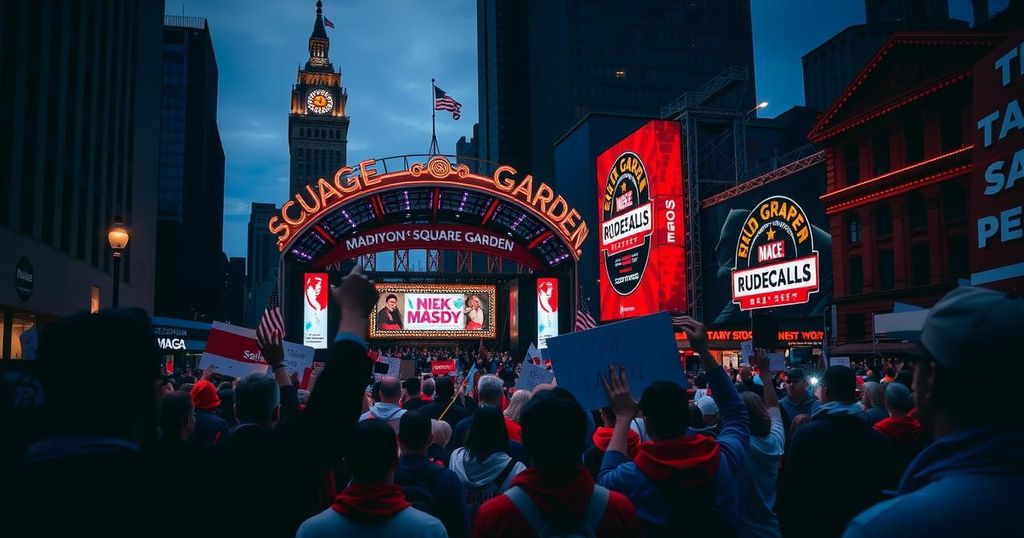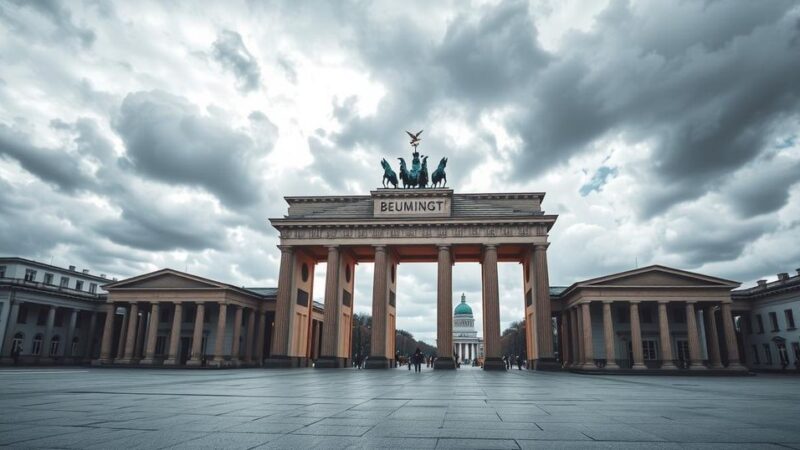The MAGA rally at Madison Square Garden featured extreme rhetoric and offensive commentary aimed at political opponents and various demographic groups. Despite being in a liberal city, the event symbolized Trump’s influence and the determination of his supporters to reject opposition, often using militaristic language that raises concerns about the future of democratic discourse.
At Madison Square Garden, a significant MAGA rally took place, beginning with a scene from the classic WWII biopic “Patton.” This introduction set a militaristic tone as George C. Scott’s portrayal of General Patton spoke defiantly against enemies, establishing a theme of total war against perceived internal adversaries. The lengthy event featured numerous speakers, including Tony Hinchcliffe, a comedian whose offensive comments about various demographics shocked even seasoned attendees. His comments perpetuated racial stereotypes and exhibited blatant racism, marking this rally as one of the more egregious examples in the MAGA series of events. Among other prominent figures, businessman Grant Cardone referred to the need to violently dismantle opposition, while others demeaned Vice President Kamala Harris, employing derogatory language and accusations. The atmosphere was heightened by vividly red lights and intense heavy metal music, evoking a chaotic spectacle reminiscent of professional wrestling in a dystopian setting. Despite the strong presence of Trump supporters in a predominantly liberal New York, the event was unlikely to earn Trump significant new votes. Nonetheless, the rally served a dual purpose: it reaffirmed Trump’s ego and his influence in a city that largely opposes him. Lifting Trump’s spirits, attendees emphasized their collective power and resilience, suggesting that such a gathering could signal a potential Republican resurgence. Influential speakers, including Tucker Carlson, framed Trump as a figure of liberation, indicating a troubling acceptance of the notion that honesty has become a weapon in their political warfare. This MAGA gathering symbolized both a rejection of current political realities and a reinforcement of extremist sentiments that may further polarize the American electorate.
The political landscape in the United States has become increasingly polarized, with gatherings such as the MAGA rally exemplifying the intense feelings of loyalty and aggression directed toward perceived adversaries. This particular event at Madison Square Garden not only aimed to energize the base but also served as a platform for the expression of starkly confrontational rhetoric against political opponents and marginalized communities. The usage of militaristic language and themes indicates a growing trend among certain political factions to normalize hostility in discourse, raising concerns about the implications for democratic engagement and societal cohesion.
The MAGA rally at Madison Square Garden illuminates trends of escalating animosity within the current political climate, promoting a narrative of adversarial confrontation that extends beyond mere political debate. The event highlighted the unwavering loyalty among Trump’s supporters, despite its potential to alienate moderate voters. Moving forward, the implications of such rhetoric and assembly will continue to impact both the political landscape and societal interactions.
Original Source: www.nytimes.com






